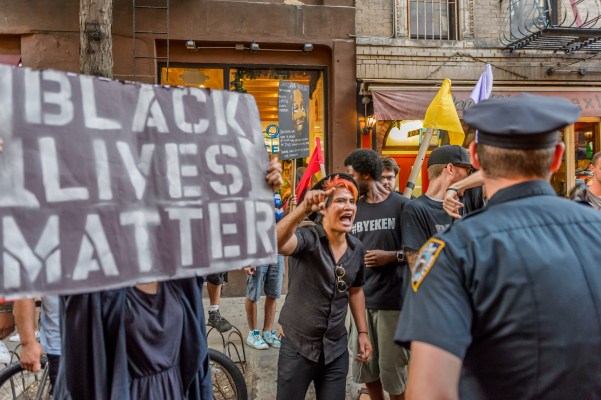In an era marked by increasing global awareness of systemic racism, the question emerges: can spiritual teachings genuinely contribute to dismantling entrenched prejudices? The Bahá’í Faith presents a comprehensive framework for addressing such social injustices, proposing a collaborative and transformative vision that transcends cultural and racial divides. This article endeavors to unravel the profound teachings of the Bahá’í Faith in tackling systemic racism, illuminating a path for collective awakening and action.
The Philosophical Foundation of Bahá’í Teachings
At the core of the Bahá’í Faith lies the principle of the oneness of humanity. Bahá’u’lláh, the founder of the Faith, elucidated that humanity is one family, regardless of race, ethnicity, or nationality. This doctrine calls for a fundamental reevaluation of how we perceive and relate to one another. It challenges individuals to confront inherent biases and fosters an ethos that promotes equity and justice. Consequently, the concept of systemic racism is not merely a social issue but a spiritual challenge, highlighting the necessity for a deep-seated transformation in consciousness.
The Role of Education in Combatting Prejudice
The Bahá’í teachings emphasize the paramount importance of education as a vehicle for eradicating ignorance—the root of prejudice and discrimination. In this view, education is not limited to formal schooling; rather, it encompasses moral and spiritual education. Bahá’ís are encouraged to develop curricula that instill a sense of global citizenship and respect for diversity from a young age. This holistic approach to education aims to cultivate empathy and understanding, ultimately equipping the next generation to challenge and dismantle the systems that perpetuate racism.
Community Building as a Catalyst for Change
In the Bahá’í community, active participation in collective endeavors serves as a potent antidote to racism. Through the strengthening of community bonds, individuals from diverse backgrounds come together to engage in meaningful dialogue and collaborative service. The Act of unity encourages Bahá’ís to transcend individual differences and work toward a common goal. This collective action can dismantle prejudicial attitudes and systemic barriers, illustrating that systemic change emerges from community engagement and solidarity.
Spiritual Practices and Their Implications
The Bahá’í teachings advocate for personal and communal prayer and meditation as essential practices for fostering an inner transformation. These spiritual exercises are not only a means of individual upliftment; they are designed to cultivate qualities such as compassion, humility, and a commitment to justice. By nurturing these virtues, individuals might more readily engage in the labor of confronting systemic inequities. It poses a challenge: how can one remain steadfast in spiritual practice while actively participating in the often turbulent arena of social justice? The answer lies in recognizing that personal spiritual development is intricately tied to societal advancement.
Engagement with Broader Social Movements
A hallmark of the Bahá’í approach to systemic racism is its engagement with broader social movements advocating for racial justice. Rather than isolating itself within the confines of spiritual discourse, the Bahá’í community embraces collaboration with various organizations and initiatives that echo its commitment to justice. This multifaceted engagement is not mere tokenism; rather, it signifies the Faith’s belief in the interconnectedness of all people and the essential role that diverse perspectives play in the pursuit of equity.
Exploring the Dangers of Racial Prejudice
The acknowledgment of systemic racism within the Bahá’í framework is a crucial step in recognizing the insidious nature of racial prejudice. It manifests not only as overt discrimination but also within institutional structures, policies, and societal norms. The teachings invite a critical examination of how these elements perpetuate inequality. The challenge lies in confronting uncomfortable truths and prevailing narratives while fostering a spirit of reconciliation and forgiveness. This dual approach provides a pathway for healing and understanding amid a complex and often painful dialogue.
The Call for Individual Responsibility
The Bahá’í teachings extend an imperative for individual responsibility in combating racism. Each person is called to engage in self-reflection, evaluating their own beliefs and actions in relation to the broader societal context. Furthermore, the Faith encourages individuals to become advocates for change in their communities, fostering discourse that challenges systemic injustices. This innate individual responsibility cultivates a sense of agency, empowering members of society to play an active role in transformation and advocacy.
Building a Just Society: The End Goal
Ultimately, the teachings of the Bahá’í Faith culminate in the vision of a just and unified global society. Systemic racism directly contradicts this ideal. Thus, the endeavor to combat racism is not an isolated effort; it is a central tenet of the pursuit of a world where justice, peace, and unity reign. By committing to this vision, individuals and communities can transcend the limitations of current systems, working diligently to forge a new paradigm wherein the equality of all people is recognized and celebrated.
The Bahá’í imperatives illuminate a path forward, inviting all to engage in the imperative task of dismantling systemic racism. This spiritual and practical approach lays a foundation for a future where humanity’s diversity is not only acknowledged but cherished. How will you contribute to this transformative journey?
